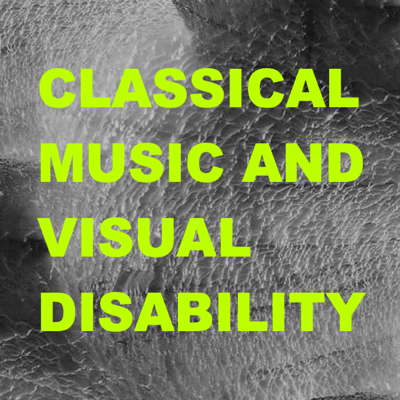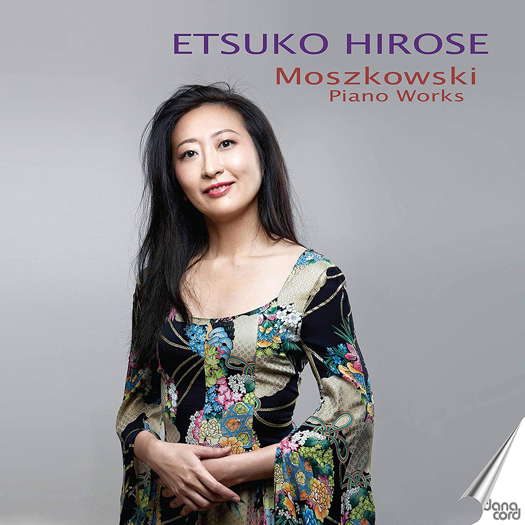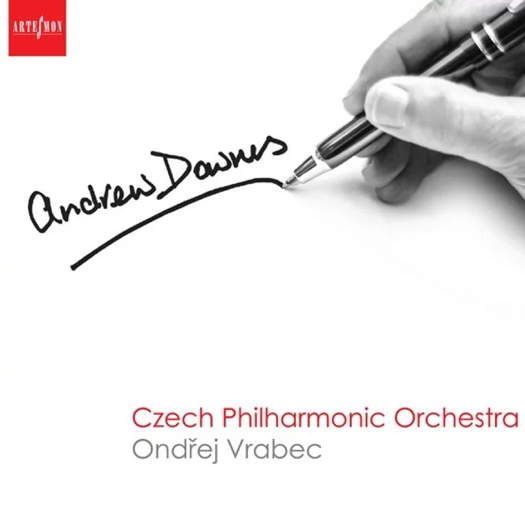 PODCAST: John Dante Prevedini leads a discussion about Classical Music and Visual Disability, including contributions from Charlotte Hardwick, Robert McCarney, Halida Dinova and Giuseppe Pennisi.
PODCAST: John Dante Prevedini leads a discussion about Classical Music and Visual Disability, including contributions from Charlotte Hardwick, Robert McCarney, Halida Dinova and Giuseppe Pennisi.

Supremely Pianistic
GERALD FENECH finds pure joy in
Etsuko Hirose's recent
Moszkowski piano works disc
'The soloist has a transcendent technique, and her brilliant command of the keyboard serves Moszkowski's cause with engaging enthusiasm.'
Moritz Moszkowski (1854-1925) was born in Breslau (now Wroclaw, Poland) into a well-off Jewish family. From a young age he showed his precocious talent for music, and in 1869 he went to Berlin to further his studies, and subsequently, after finishing his training at the Theodor Kullak Academy, he spent the next twenty-five years teaching at this same venue. In 1873 he set off on his career as a pianist in the German capital, earning an excellent reputation as a true virtuoso of the keyboard, and this led to numerous tours in Europe. He was also an accomplished violinist and conductor. An extremely good teacher, he was very demanding with his pupils, among whom one finds such famous performers as Wanda Landowska, Vlado Perlemuter and Josef Hofmann.
In 1884 Moszkowski married the younger sister of Cecile Chaminade, Henriette, and the couple had two children, Marcel (1887) and Sylvia (1889). Sadly, the marriage failed, and in 1890 Henriette abandoned her family and went to live alone in Paris. They divorced in 1892. In 1897 the composer also moved to Paris. Henriette died in 1900 and six years later Moszkowski also lost his seventeen-year old daughter. After World War I he was financially ruined, and his last years were punctuated by poverty and illness.
Today, his piano genius is almost forgotten; a great tragedy this, as in his day he was highly admired and respected. Maybe the greatest accolade he received was from his compatriot and likewise composer-pianist Ignacy Paderewski who said: 'After Chopin, Moszkowski best understands how to write for the piano, and his writing embraces the whole gamut of piano technique.'
The timing of this release could hardly be better for those who need to be uplifted from the gloom surrounding our lives at the moment. The music itself is not only elegant, heartfelt, tuneful and supremely pianistic; it is pure joy from start to finish.
Listen — Bizet, arranged by Moszkowski: Chanson bohème (Carmen)
(track 14, 3:12-4:12) © 2020 Danacord Records:
Etsuko Hirose plays on a superb Bechstein instrument which gives a slight tenderness but at the same time a subtle sonority. The result is an untiring span of hearing these colours, which seem ever fresh. Every piece is a gem, from the ingenious transcriptions of Tristan, Carmen and Tales of Hoffmann to the opening delectable Valse.
Listen — Moszkowski: Valse Op 34 No 1)
(track 1, 2:46-3:31) © 2020 Danacord Records:
The programme also includes some thrilling numbers such as Die Jongleurin, Etincelles and the sumptuous Étude, Op 72 No 13.
Listen — Moszkowski: Étude, Op 72 No 13
(track 6, 3:00-4:00) © 2020 Danacord Records:
The soloist has a transcendent technique, and her brilliant command of the keyboard serves Moszkowski's cause with engaging enthusiasm. A disc to be played over and over again. Sound and annotations are first-rate.
Copyright © 28 May 2020
Gerald Fenech,
Gzira, Malta

CD INFORMATION: MOSZKOWSKI PIANO MUSIC - ETSUKO HIROSE
FURTHER INFORMATION: MORITZ MOSZKOWSKI
FURTHER INFORMATION: DANACORD RECORDS




